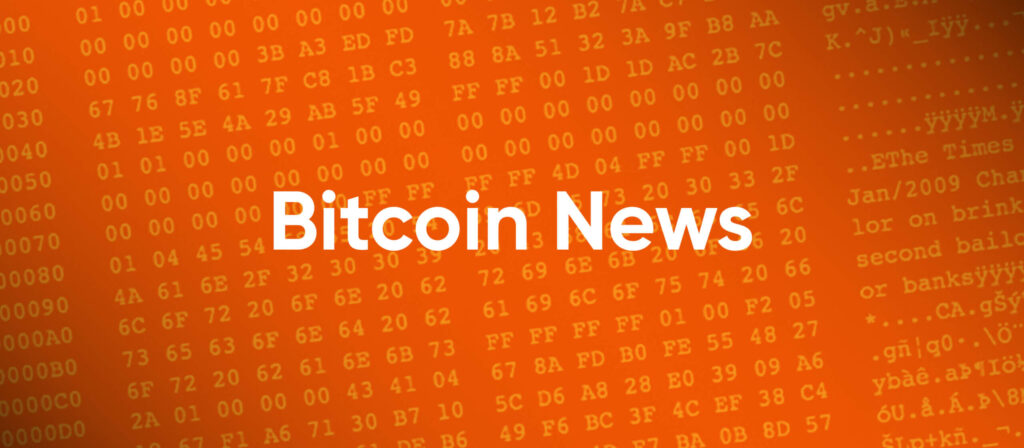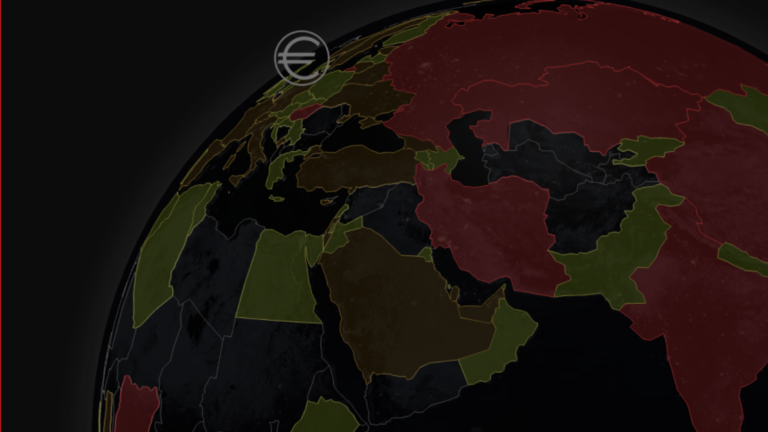Good morning, readers!
This week, authoritarian regimes intensified financial controls in response to global cost of living pressures. In El Salvador, President Nayib Bukele initiated investigations into supermarkets allegedly hiking the prices of basic goods. Echoing countless socialist and statist leaders of the past, Bukele asserts these measures are necessary to “combat speculation” and “prevent hoarding,” but history teaches us that such measures usually exacerbate shortages and signal an alarming centralization of power.
Similarly, in Cuba, the dictatorship has installed price caps on essential items such as chicken, vegetable oil, and pasta amid a nationwide cost of living crisis. Deemed “war-time” measures by the regime, these new controls have drawn swift criticism from Cuban citizens and organizations who argue they risk amplifying food insecurity and constitute economic folly.
In an instance of micro-financial repression, a Russian court sentenced a 21-year-old artist to nine years in prison over a $30 donation to the Ukrainian resistance, showcasing the ongoing financial surveillance in Russia and the extreme penalties faced for financially supporting causes contrary to Vladimir Putin’s totalitarian regime.
On the technology front, Bitcoin Improvement Proposal (BIP) 353, known as “DNS Payment Instructions,” is gaining traction among Bitcoin wallets. Phoenix Wallet and Zeus Wallet both integrated support for BIP 353 this week, enabling users to create static, human-readable Lightning addresses using the Internet’s Domain Name System (DNS) — a big step forward for activists who want to popularize privacy-protecting “tip jars.”
Lastly, we want to alert you to two keynote addresses from Alex Gladstein, HRF Chief Strategy Officer, at next week’s Bitcoin 2024 conference in Nashville, Tennessee. Gladstein will deliver 30-minute keynotes on July 26 and 27 at 11:30 a.m. local time in front of an audience of 6,000+ on Bitcoin’s global utility: the first on “Commerce and Freedom” and the second on “Power.” The talks will be livestreamed.
Now, let’s dive right in!
The Financial Freedom Report is a newsletter focusing on the role currency and banking play in the civil liberties and human rights struggles of those living under authoritarian regimes. We also spotlight new tools and applications that can help individuals protect their financial freedom.

Saudi Arabia | Sentences Teacher to 20 Years Over Tweets
Saudi Arabia’s counterterrorism tribuna sentenced Asaad al-Ghamdi, a 47-year-old teacher, to 20 years in prison for social media activity that challenged “the religion and justice of the King and Crown Prince.” Al-Ghamdi’s posts included criticism of Vision 2030, a nationwide economic overhaul, and tweets mourning a deceased fellow activist, which resulted in law enforcement raiding his home at night and arresting him in front of his family. Al-Ghamdi was then held in solitary confinement for months and was refused proper care despite suffering from epilepsy. Similarly, his brother, Mohammed Al-Ghamdi, was convicted in 2023 over tweets linked to an anonymous Twitter account that criticized the regime’s economic policies and called for the release of political prisoners. For this, he was sentenced to death. Both of these sentences are part of Saudi Arabia’s repression of free expression and stifling of civil society, as evidenced by the regime going so far as to target dissidents’ families to force compliance. HRF has called for the Al-Ghamdi brothers’ immediate release and access to necessary medical care.
El Salvador | Investigates Supermarkets for Price Increases
Salvadoran President Nayib Bukele began investigating supermarkets for sharply increasing prices on a range of basic goods. This investigation follows Bukele’s announcement to combat corporate “mafias” that he claims are driving up the cost of living, with some items rising in price by more than 40%. Salvadoran officials have submitted information requests to the six main supermarket chains, giving them 10 days to respond. The investigation apparently aims to identify those responsible for price increases affecting around 68 basic goods. Bukele alleges the goal of this investigation is to combat speculation and prevent hoarding; however, this is an obvious implicit attempt to create price controls, a common (and ineffective) tactic used by statist regimes all across the planet.
Russia | Sentences Artist to Nine Years for Ukraine Donation
A Russian court sentenced 21-year-old Tatyana Laletina to nine years in prison for high treason after she allegedly made a $30 donation to the Ukrainian resistance. This detention illustrates the extreme penalties individuals face for financially supporting causes contrary to the interests of the Russian regime. Such penalties create an environment of fear and oppression, discouraging individuals from challenging state policies and objectives through supporting humanitarian causes. As Putin tightens his control and surveillance over the monetary system, Russian citizens simply exercising their right to financial freedom and expressing dissent face arbitrary arrests, fines, and imprisonment. In doing so, Putin’s regime eliminates dissent, competition, and voices that deviate from his fabricated narrative.
Zimbabwe | New ZiG Currency Kept Afloat Through Inaccessibility
Bloomberg reports that the issuance of Zimbabwe’s new ZiG currency is under tight control, with the regime attempting to maintain exchange rate stability by using violence to crack down on informal trading. Many Zimbabweans have never even seen the new ZiG banknotes and frequently joke that they are only stable because they are unavailable. Consequently, more than 80% of transactions still occur in US dollars. This artificial scarcity keeps the ZiG relatively stable at the cost of Zimbabwe’s financial freedoms, leaving them a) dependent on foreign currencies (that face chronic shortages or even fines or detention for use) and b) unable to transact and manage their finances in the local currency. Bitcoin and stablecoin use continue to spike in economic situations like Zimbabwe.
Cuba | Implements Price Caps to Curb Inflation
Last Monday, the Cuban regime introduced price caps on essential items such as chicken, vegetable oil, powdered milk, sausages, pasta, and laundry detergent. This comes alongside additional measures to further centralize decision-making over the federal budget. The regime labeled these endeavors a “war-time” economic strategy and are widely viewed as an attempt to quell nationwide inflation and burgeoning budget deficits. But Cuban organizations such as the Food Monitor Program warn that “this unilateral measure could negatively impact the private sector, deter investments, create more shortages, and amplify the black market.” Adding to these concerns, Cuban lawyer Manuel Viera warned that these new measures “will starve us. No private importer will take the risk of importing if the dollar fluctuates without being able to adjust the price. It’s economic suicide.” By implementing these policies, the Cuban regime risks perpetuating the cycle of poverty, rising costs, and dependence on state-controlled resources that has plagued the country for decades.

Phoenix Wallet | Adds Support for Human-Readable Addresses
Phoenix, a popular Bitcoin and Lightning wallet, aims to simplify payments on the Lightning Network by adding support for BIP 353 addresses. These addresses enable users to save their Lightning offers (payment requests) as Domain Name System (DNS) entries on an Internet domain. Phoenix Wallet can then perform a DNS lookup to obtain an offer for a given user. Instead of long strings of numbers, users can have static addresses like user@domain, making it easier to share payment information. Seth for Privacy explains: “In essence, BIP 353 gives anyone with access to a domain the ability to have their own custom (payment) usernames with just a few clicks of a mouse.” With this update, Phoenix not only improves the utility of Lightning transactions but also enables individuals in oppressive regimes to receive payments more securely and privately. You can learn more about BIP 353 here and, if you wish, donate to HRF by sending satoshis to [email protected].
Zeus Wallet | Releases Version 0.8.5
Zeus Wallet recently rolled out version 0.8.5, a significant update introducing BOLT 12 offers and BIP-353 Lightning addresses. With BOLT 12, Zeus users can now generate reusable payment requests with greater receiver privacy — a valuable feature for activists or organizations seeking to receive donations discreetly. Additionally, Zeus incorporated support for BIP 353, enabling users to create static, human-readable payment addresses (such as user@domain). This is achieved by storing a Lightning offer as DNS entries on internet domains. The update also optimizes Zeus’s “node in a phone” feature, ensuring a smoother user experience. These enhancements improve Lightning’s versatility for Zeus users and grant them greater privacy and control over their financial interactions.
ChillDKG | Distributed Key Generation for FROST
ChillDKG, a new protocol and draft BIP, improves Bitcoin’s FROST (Flexible Round-Optimized Schnorr Threshold Signatures) signature scheme by providing a standalone method for distributed key generation (DKG). ChillDKG directly integrates secure communication channels and consensus mechanisms, eliminating the need for external dependencies, such as trusted coordinators, which are a potential single point of failure in FROST key generation. This is a major advancement for FROST setups, significantly enhancing the robustness and privacy of multisignature transactions, which are particularly beneficial for activists and others prioritizing privacy in the Bitcoin ecosystem who might need the flexibility of FROST when designing and editing multi-signature schemes. HRF is delighted to support further FROST development through a recent grant, helping drive the growth of more diverse financial solutions on the Bitcoin network.
OpenSats | Announces Recipients of Education and Nostr Grants
OpenSats announced its first round of grants for Bitcoin education projects as part of its new education initiative. The recipients include the Satoshi Nakamoto Institute, which preserves and advances knowledge of Bitcoin’s history and technology; Mi Primer Bitcoin, which empowers individuals and communities with the world’s first Bitcoin diploma; and Summer of Bitcoin, which introduces university students to Bitcoin open-source development through a global, online summer internship program. OpenSats further unveiled its fifth wave of Nostr grants, helping drive innovation through its support of free and open source (FOSS) projects building on the global communications protocol. HRF is pleased to support OpenSats through a recent grant, aiding in the dissemination of Bitcoin educational content and the development of FOSS projects worldwide.
Volt Wallet | Implements Breeze SDK
Volt, a new Bitcoin wallet under development by Nigerian developer Abubakar Nur Khalil, is integrating the Breez Software Development Kit (SDK) to help it transform payments across Africa with the Lightning Network. By leveraging the Breez SDK, Volt aims to provide Bitcoin and Lightning payments, fiat on and off ramps, and on-chain operability — all without compromising user custody or requiring Know-Your-Customer (KYC). Through Volt, Khalil, a Bitcoin developer and CEO of Recursive Capital, seeks to address Africa’s fragmented payment landscape and help secure financial freedom for 1.5 billion people.
Blitz Wallet | Reveals Anonymous SMS Feature
Blitz, a self-custodial Bitcoin and Lightning wallet currently in beta, revealed a new feature enabling users to send anonymous SMS messages in exchange for sats. Blitz achieves this by integrating sms4sats, an online service enabling the generation of disposable phone numbers for receiving activation codes and renting temporary phone numbers for SMS messages. This integration, however, does not transform Blitz into a messaging app. Instead, for example, users can leverage this feature to register for online services using a dummy phone number for increased privacy. This capability, combined with Blitz’s KYC-free nature, positions it as a potentially valuable tool for activists under surveillance and anyone seeking to maintain phone number privacy when creating new online accounts.
Burma | Bitcoin Meetup
On July 27, Burmese Bitcoin advocates will convene at the Bitcoin Learning Center in Chiang Mai, Thailand, for their second Bitcoin Meetup, organized by BOB Space. The meetup will feature discussions on leveraging Bitcoin and sovereign technologies to navigate censorship, an analysis of monetary policies across Southeast Asia, and opportunities for networking with like-minded peers. Attendees will engage in thought-provoking discussions, helping citizens understand Bitcoin’s role in strengthening financial independence and freedom within the Burmese community. With severe monetary restrictions imposed by the ruling military junta, understanding Bitcoin’s potential as a tool to navigate these challenges is essential. HRF is proud to support BOB Space’s residency program. You can RSVP to the meetup here.
Recommended Content
Bitcoin is for Human Rights Activists by Ayelen Osorio
At the Bitcoin is for Everyone conference in Portland, Ore., HRF’s Ayelen Osorio delivered a powerful presentation on Bitcoin’s role in empowering human rights activists globally. Osorio highlighted how Bitcoin serves as a vital tool amid financial repression, enabling activists to transact securely, receive donations without censorship, and evade government crackdowns on traditional banking. She recounted how the Anti-Corruption Foundation (ACF), a Russian nonprofit opposing Putin, faced repeated bank account shutdowns orchestrated by the Russian regime, compelling them to adopt Bitcoin for financial survival. This enabled the ACF to continue paying salaries, covering rent, and supporting political prisoners despite ongoing repression. She shared similar stories from Burma, where activists rely on Bitcoin to sustain their movements amid oppressive regimes. Osorio’s insights shed light on Bitcoin not just as a digital currency but as a beacon of financial freedom for those advocating against tyranny worldwide. You can watch the full presentation here.
Financial Freedom Track Sessions From OFF
The Financial Freedom Track sessions from the 2024 Oslo Freedom Forum in Norway are now posted on YouTube. These sessions feature inspiring stories from human rights advocates and dissidents who discuss their battles against tyranny, sharing how Bitcoin has transformed their work and efforts. Viewers can learn about the role of Bitcoin in supporting democracy and empowering marginalized individuals to reclaim their financial future. Discussions also explore the flaws of authoritarian fiat currencies, new freedom technologies and tools, and the threats posed by central bank digital currencies (CBDCs) to civil liberties worldwide. We highly encourage you to watch these insightful presentations to gain a deeper understanding of these critical issues.






